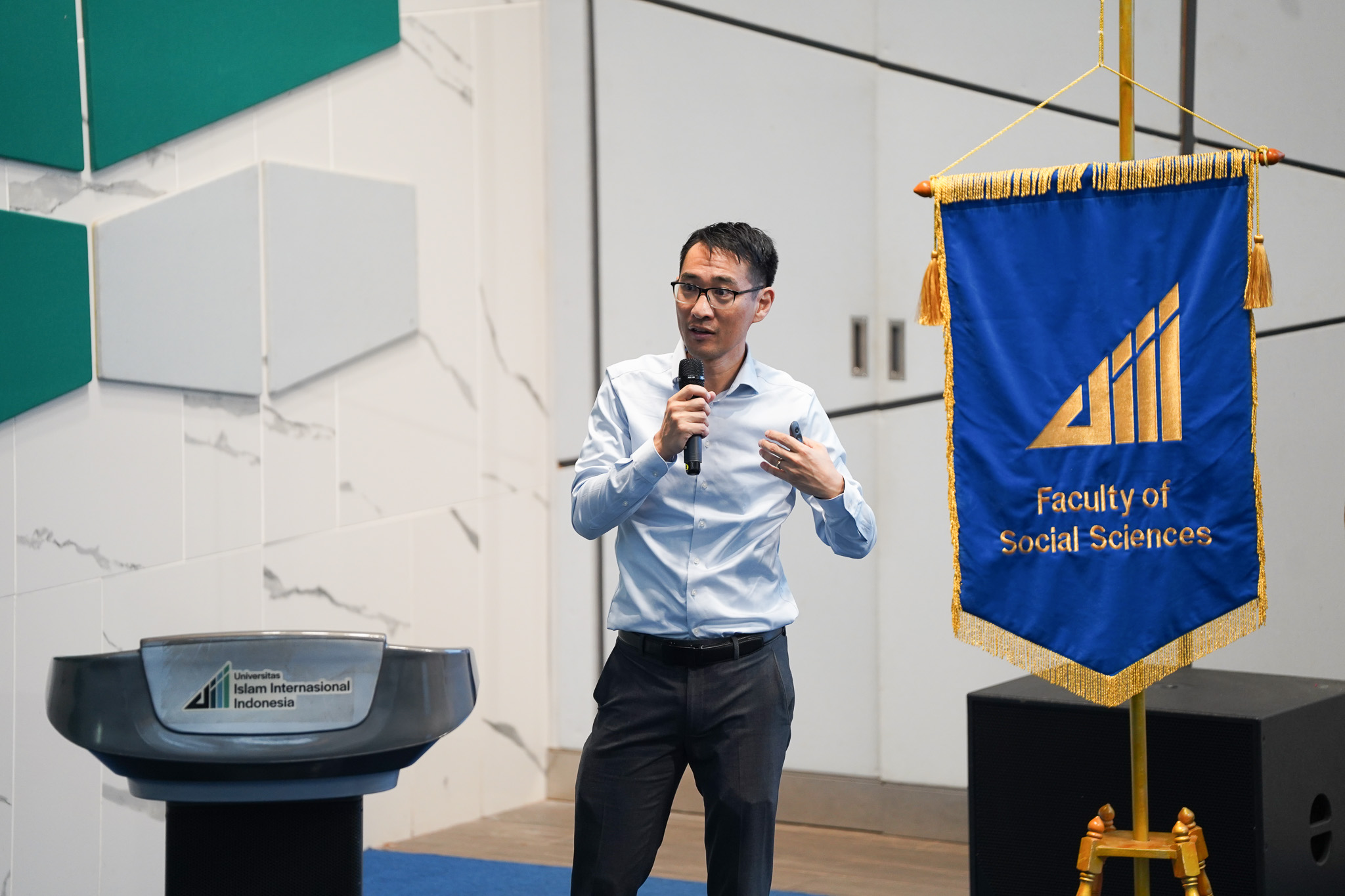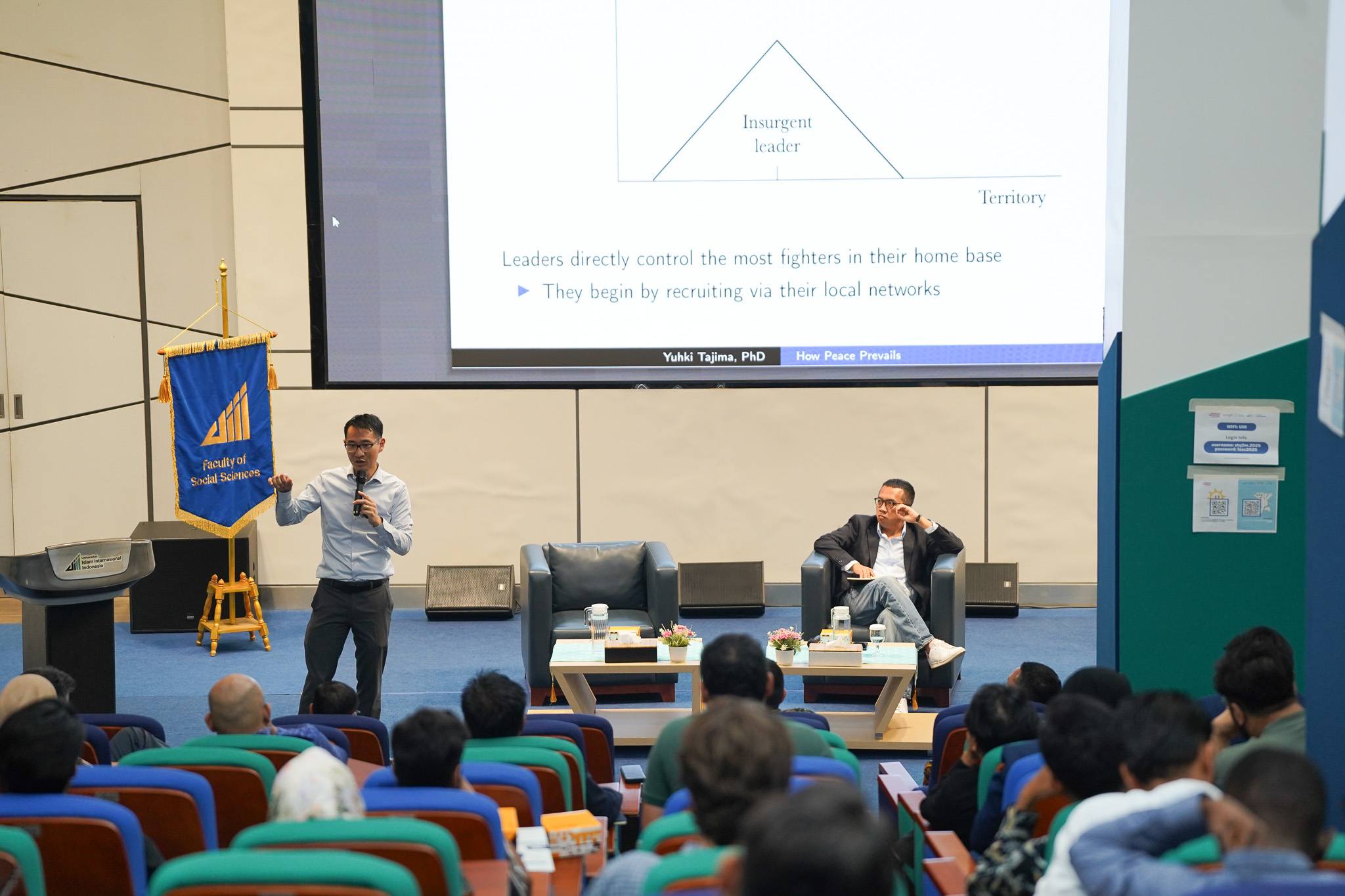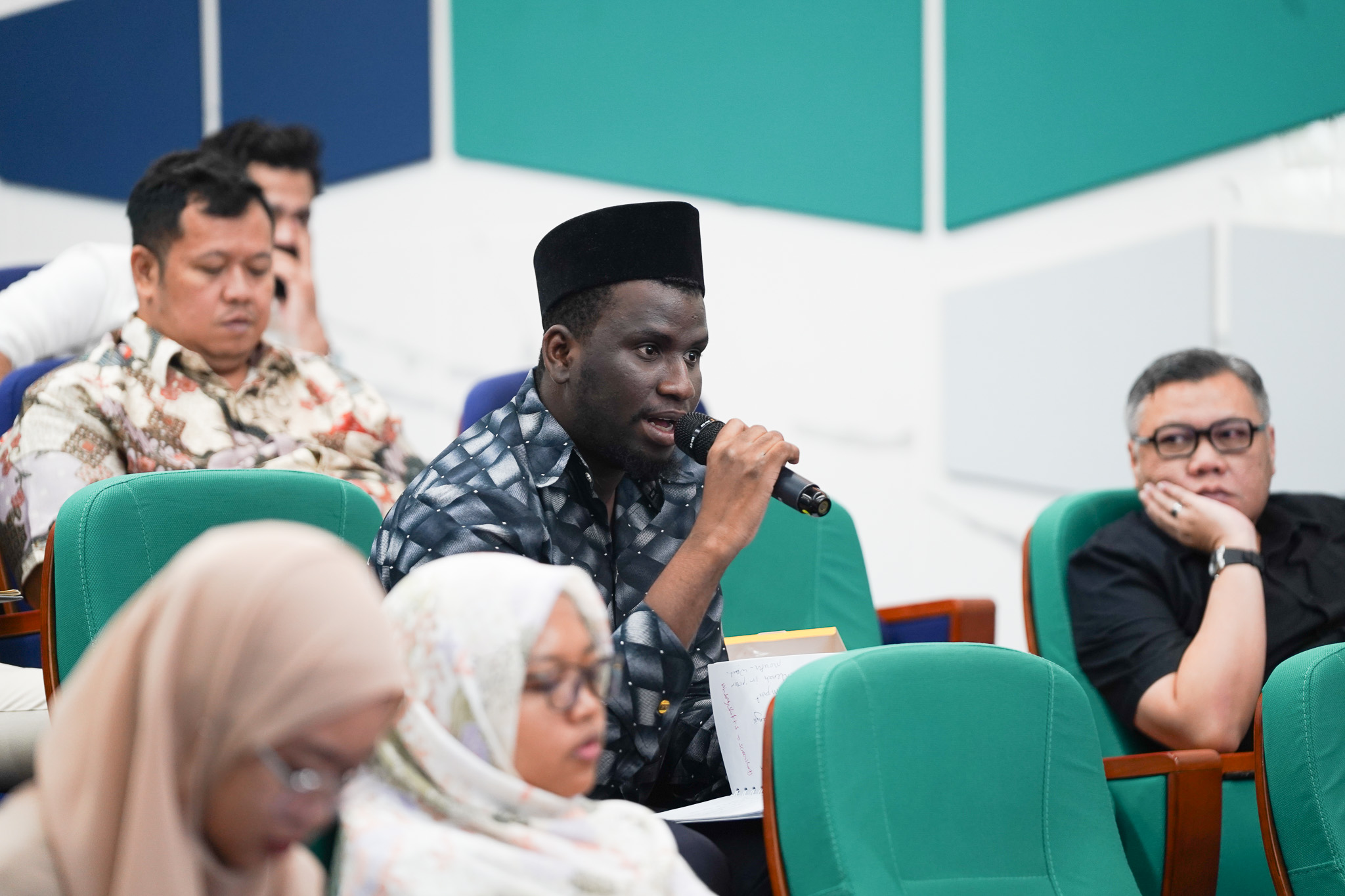July 15, 2025
Contributor: Supriyono | Editor: Dadi Darmadi | Photo: Sarah Permatasari

In a region scarred by decades of conflict, why did Aceh’s peace agreement succeed while Mindanao’s has struggled to take hold? This was the question at the heart of Professor Yuhki Tajima’s lecture at Universitas Islam Internasional Indonesia (UIII) on July 7, 2025.
Drawing from his extensive research in both Aceh and Mindanao, Prof. Tajima, Founding Rector of Georgetown SFS Asia Pacific and an Associate Professor at Georgetown University in the Edmund A. Walsh School of Foreign Service, explained that Aceh’s success hinged on the former rebel movement’s ability to maintain tight internal discipline.
“The Free Aceh Movement was much more effective at keeping potential splinter groups in line through a mix of incentives and pressure,” he said. “These relationships between foot soldiers and commanders were deep, and that made it harder for factions to break away.”

In contrast, Mindanao’s insurgent groups were fragmented, with looser ties to central leadership. “In Mindanao, the Moro movements were more splintered because there weren’t as deep relations between foot soldiers in certain regions with the central commanders,” he explained. “So, it was easier to make splinter groups more viable in regions that were outside of the direct control of central leaders.”
But understanding these dynamics wasn’t simply a matter of observation—it was the result of combining different research strategies. “You can’t answer these questions with just one method,” Tajima emphasized. “Qualitative interviews help you see the hidden relationships and motivations. Quantitative surveys and network analysis show whether these patterns are consistent and significant.”
He noted that both approaches have strengths and weaknesses, but together they provide a fuller picture of how peace processes succeed or fail. “That’s exactly why programs like this summer training in qualitative and quantitative methods are so valuable,” he added.
The lecture by Professor Tajima was part of the FOSS Summer Training, which has become a signature program at UIII, attracting young scholars eager to strengthen their research skills and engage with leading experts. First initiated in 2022, the Summer Training has now reached its fourth year, growing into a respected platform where participants from Indonesia and abroad come together to explore advanced techniques in social science research.
Reflecting on his visit, Professor Tajima praised UIII as a model for international collaboration and rigorous scholarship. “I think this university is fantastic,” he said. “You bring together Indonesian and international students with a focus on serious research and exchange. It’s a wonderful example, even for us at Georgetown, and we’re very interested in continuing to collaborate.”

Universitas Islam Internasional Indonesia